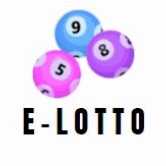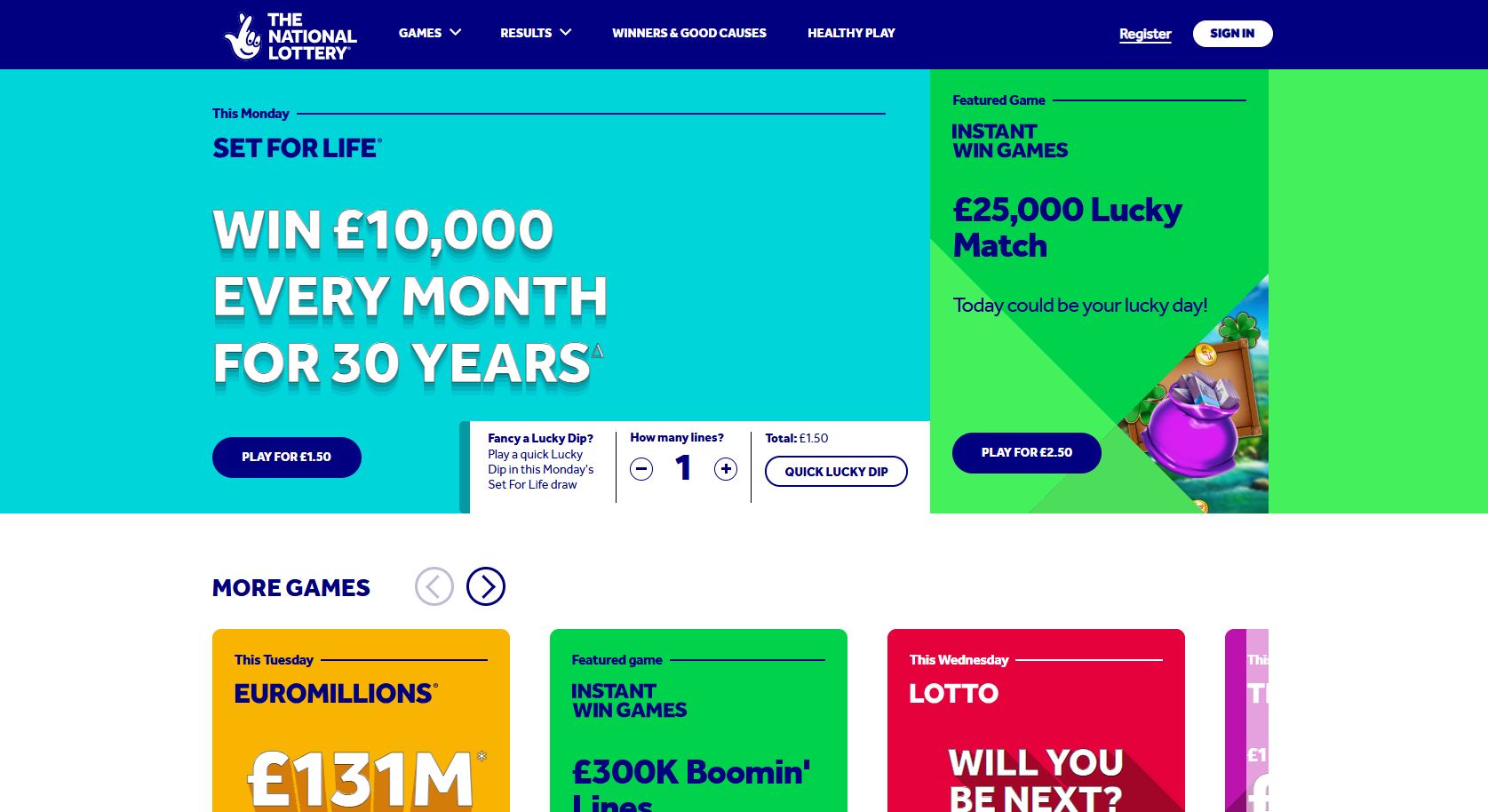UK National Lottery
The UK National Lottery: Changing Lives, One Ticket at a Time
Since its launch in 1994, the UK National Lottery has grown into far more than just a weekly flutter — it’s a national institution that blends excitement with meaningful impact. Every ticket sold offers a chance to dream big, while also helping fund thousands of good causes across the country. From upgrading local sports facilities and preserving historic landmarks to supporting vital healthcare initiatives and nurturing creative talent, the National Lottery has injected over £47 billion into communities across the UK. It’s a win-win — whether or not your numbers come up.
The thrill of the draw brings people together, uniting friends, families, and colleagues in hopeful anticipation. With popular games like Lotto, EuroMillions, Thunderball, and Set For Life, players have a wide range of ways to play — and to imagine what’s possible. But even beyond the prizes, the real jackpot may just be the positive change created every day. The UK National Lottery continues to prove that when entertainment meets purpose, something truly powerful happens: communities grow stronger, dreams get a little closer, and lives are transformed — one ticket at a time.
The UK National Lottery stands as one of the most significant and long-standing institutions in British public life, combining entertainment, chance, and public good in a unique format that has profoundly shaped the cultural and financial landscape of the country. Launched in 1994 under the Conservative government of Prime Minister John Major, the National Lottery was envisioned as a way to raise money for “good causes” across the United Kingdom while also providing ordinary citizens with the opportunity to dream big by playing a range of chance-based games. Since its inception, the National Lottery has awarded billions of pounds in prizes and contributed a similarly massive sum to public and charitable initiatives.
The first National Lottery draw took place on November 19, 1994, with a televised event hosted by Noel Edmonds. That night, seven winners shared a jackpot of nearly £6 million, and a new national tradition was born. From that moment, the National Lottery became an institution, supported by weekly televised draws, a growing array of games, and an expanding pool of players. Originally operated by the Camelot Group, the lottery was passed to Allwyn Entertainment Ltd in February 2024, marking a new era in its management. Despite this transition, its structure remains regulated by the UK Gambling Commission to ensure integrity, transparency, and public benefit.
The purpose of the National Lottery is not only to offer entertainment and financial rewards to participants but also to support a wide variety of sectors including arts, heritage, sports, health, education, and environmental projects. Around 25% of the money generated by ticket sales goes toward these “good causes,” distributed through organizations like the National Lottery Community Fund and the Big Lottery Fund. These funds have helped build sports centers, support community theatre, preserve historical landmarks, and fund research and innovation in healthcare. This unique blend of gambling and philanthropy has sparked some criticism, with detractors referring to the good causes contribution as a form of “stealth tax,” but the broader public has largely embraced the model as a socially responsible use of gambling revenue.
The National Lottery’s operations are funded through a structure where approximately 53% of revenue goes to the prize pool, 25% to good causes, 12% to the government as lottery duty, 4% to retailers as sales commission, and 5% to the operator, with 4% of that covering costs and 1% considered profit. As of April 2021, players must be at least 18 years old to purchase lottery tickets or scratchcards, up from the previous minimum age of 16.
Over the years, the National Lottery has grown far beyond its original game, now known as Lotto. The portfolio of games has diversified to include Thunderball, Set For Life, EuroMillions, Lotto HotPicks, and EuroMillions HotPicks. Each game has distinct mechanics, prize structures, and odds, appealing to different demographics and playing preferences.
Lotto remains the flagship game, offering draws twice a week on Wednesdays and Saturdays. Players choose six numbers between 1 and 59, and prizes are awarded for matching as few as two numbers. Jackpots begin at several million pounds and can grow significantly through rollovers. Notably, in January 2016, Lotto reached its then-record £66 million jackpot, split between two winners. Over time, Lotto has undergone various rule changes, including the expansion of the number pool, adjustments to prize tiers, and the addition and subsequent removal of features like the Lotto Raffle.
Thunderball is another long-running game that offers a maximum jackpot of £500,000, regardless of how many winners there are. Introduced in 1999, Thunderball requires players to pick five numbers between 1 and 39 and one Thunderball number between 1 and 14. Draws are held four times a week, offering players frequent chances to win smaller but tax-free cash prizes.
Set For Life is a relatively newer game that launched in March 2019, offering a compelling alternative to lump-sum jackpots. The top prize is £10,000 every month for 30 years—a life-changing sum that is more akin to a steady income than a windfall. Players choose five numbers from 1 to 47 and one “Life Ball” from 1 to 10, with draws taking place every Monday and Thursday. This game has proven particularly popular with players seeking long-term financial security rather than instant millions.
EuroMillions, a pan-European lottery launched in 2004, allows players to compete for massive jackpots across several countries. The odds of winning the jackpot are longer due to the broader participation base, but the rewards are proportionately higher. The largest EuroMillions jackpot ever won in the UK exceeded £209 million, marking it as one of the most lucrative games in the world. Draws are held on Tuesdays and Fridays and require players to select five main numbers from 1 to 50 and two Lucky Stars from 1 to 12. The game is co-managed by lottery operators in multiple European countries and has generated enormous excitement with its record-breaking payouts and frequent promotional events.
HotPicks is a set of parallel games based on both Lotto and EuroMillions draws, but with a unique twist: players must match all of their chosen numbers to win. For example, if a player chooses to match three numbers in Lotto HotPicks, they must get exactly those three correct to win the corresponding prize. This structure offers higher potential payouts for fewer numbers but increases the risk. HotPicks appeals to players who prefer skill-based number selection and the thrill of higher-stakes odds.
The National Lottery also offers instant win games and scratchcards available both in stores and online. These vary in price and payout and have become a popular casual gaming option for those who want immediate results rather than waiting for scheduled draws.
Technologically, the National Lottery has evolved with the times. Initially focused on physical tickets and televised draws, it now offers a robust online presence, complete with mobile apps, digital ticket purchasing, and live-streamed draws via YouTube. This digital transformation has helped maintain player engagement, especially among younger demographics more inclined to use smartphones and online platforms.
Security and player protection have remained a priority, particularly as digital threats evolve. In 2018, Camelot reported a cyberattack affecting around 150 customer accounts, prompting widespread password resets and heightened security measures. These kinds of incidents highlight the importance of robust cybersecurity in a lottery system that handles personal data and financial transactions for millions of users.
Despite competition from other forms of gambling, including sports betting and online casinos, the National Lottery retains a unique status in the UK as a form of state-franchised gambling with a public purpose. Its blend of entertainment, hope, and charitable contribution makes it more than just a game of chance. It is, for many, a weekly ritual, a moment of fantasy, and a small investment in community betterment.
Culturally, the National Lottery has embedded itself into British life, with its draws once a staple of prime-time television. Although the televised broadcasts have shifted from the BBC to ITV and now largely exist online, the lottery continues to command attention, particularly when large jackpots are at stake. Winning stories frequently make headlines, and some winners become public figures, sharing their life-changing experiences with the media.
The UK National Lottery represents a fascinating intersection of public policy, entertainment, and economic redistribution. With over two decades of history, multiple game formats, and billions of pounds distributed in both prizes and public funding, it remains a cornerstone of British life. Whether one plays for the jackpot, the thrill, or the satisfaction of contributing to national good causes, the National Lottery’s enduring appeal lies in its ability to turn small moments of hope into potentially transformative realities.
FAQ: The UK National Lottery
1. What is the UK National Lottery?
The National Lottery is a state-franchised lottery in the United Kingdom offering a variety of games with prizes and funding for public causes.
2. Who operates the National Lottery?
As of February 2024, Allwyn Entertainment Ltd operates the lottery, taking over from Camelot Group.
3. When was the National Lottery launched?
The first National Lottery draw took place on 19 November 1994.
4. How is the National Lottery regulated?
It is regulated by the Gambling Commission to ensure fair play and proper fund distribution.
5. What happens to the money from ticket sales?
Around 53% goes to prizes, 25% to good causes, 12% to tax, 4% to retailers, and 5% to the operator (including 1% profit).
6. What is the minimum age to play?
Players must be at least 18 years old to buy lottery tickets or scratchcards.
7. What are the main games offered?
The main games are Lotto, Thunderball, Set For Life, EuroMillions, Lotto HotPicks, and EuroMillions HotPicks.
8. What is Lotto and how does it work?
Lotto is a draw held twice weekly where players choose six numbers from 1 to 59; jackpots grow with rollovers.
9. What is Thunderball?
Thunderball offers a top prize of £500,000 by matching 5 numbers from 1 to 39 and one Thunderball from 1 to 14.
10. What is Set For Life?
Set For Life offers £10,000 per month for 30 years for matching 5 main numbers and the Life Ball.
11. How does EuroMillions differ?
EuroMillions is a pan-European game with huge jackpots, played by selecting 5 numbers from 1 to 50 and 2 Lucky Stars from 1 to 12.
12. What are HotPicks games?
HotPicks games are based on Lotto or EuroMillions results, letting players pick fewer numbers for bigger odds and prizes.
13. Are lottery winnings taxed in the UK?
No, all National Lottery winnings are paid tax-free.
14. What is the purpose of the National Lottery?
Its purpose is to provide entertainment and raise funds for public initiatives in the arts, sports, heritage, health, and education.

